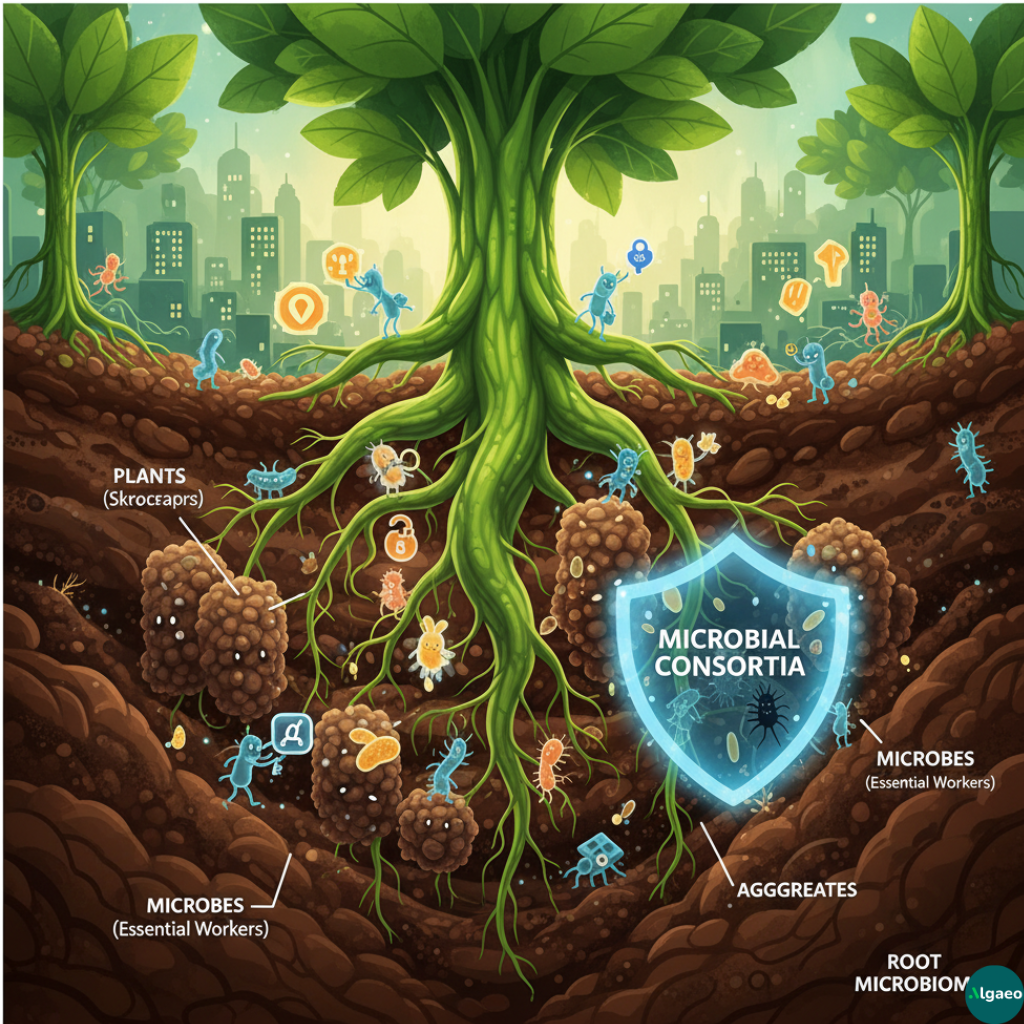If you’ve ever wondered how to get richer soil or grow healthier plants, the answer isn’t just in fertilizer—it’s in the invisible world of soil microbes. Beneath your feet, an unseen army of beneficial bacteria and fungi is working to create a vibrant, productive garden. Harnessing the natural power of microbes is key to a more productive food production ecosystem.
This guide explains what soil microbes do and how you can use them to build superior soil health.
What Are Soil Microbes?
Think of your soil as a living city. Plants are the skyscrapers, and microbes are the essential workers. They include bacteria, fungi, archaea, and protozoa, all performing critical tasks that synthetic fertilizers simply can’t.
Key Benefits of Soil Microbes for Your Garden
A healthy population of soil microbes provides tangible benefits you’ll see in your plants, from the roots up.
- They Unlock Plant Nutrients: Your soil is full of nutrients like phosphorus and iron, but they are often in a “locked” form that plants can’t use. Specific beneficial bacteria act like keys, solubilizing these compounds and converting them into a bioavailable form. This means your plants get more of what they need without you having to add more fertilizer.
- They Defend Against Disease: A diverse and robust microbial community (a “microbial consortia”) forms a natural shield around plant roots. This “root microbiome” outcompetes and even attacks pathogenic (bad) microbes, acting as a natural immune system for your garden and reducing the need for chemical fungicides.
- They Build Better Soil Structure: Microbes produce sticky substances (like glomalin from mycorrhizal fungi) that bind tiny soil particles together. This process creates “aggregates,” which are the key to fluffy, rich soil. This structure improves aeration (roots need to breathe!), water retention, and drainage, preventing compaction.
- They Improve Water Efficiency: Soil rich in microbial life and organic matter holds water like a sponge. This means less water runoff and less time spent irrigating. Your plants stay hydrated longer, making them more resilient to drought.
How to Increase Soil Microbes in Your Garden
While natural soil has microbes, factors like tilling, chemical treatments, and environmental stress can deplete them. This is where microbial biostimulants come in.
- Jumpstart Your Soil: Adding a lab-grown biostimulant, like Algaeo’s PhD-formulated blends, introduces a powerful and diverse consortium of microbes to rejuvenate tired garden beds.
- Boost Root Development: Our cultures are specifically selected to encourage stronger, more extensive root systems, which are the foundation of a healthy plant.
At Algaeo, our lab-direct approach ensures you receive high-density, contaminant-free microbial cultures. We bridge the gap between cutting-edge science and your backyard, giving you the tools for truly superior soil health.
Conclusion: Investing in your soil’s microbial health is a return to nature’s most effective process. It’s the secret to unlocking your garden’s full potential, growing healthier plants, and cultivating a living, resilient ecosystem.
Ready to transform your garden soil? Explore Our Microbial Biostimulants Here!

Disclaimer: Image is AI generated for purely illustrative and artistic purposes.
